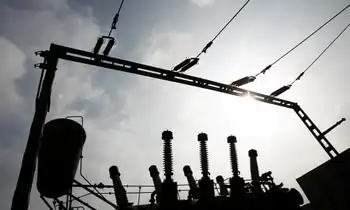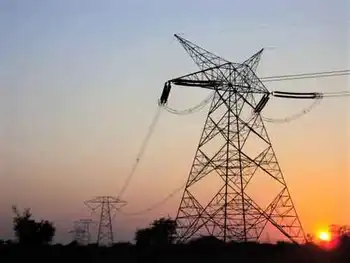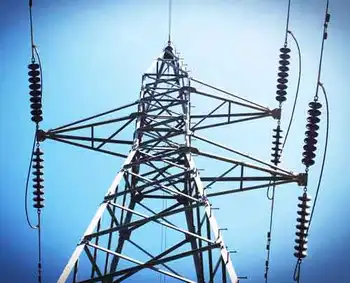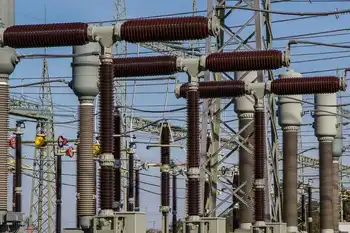New life for the Saco River? A tentative agreement with a power company would benefit both fish and people
MAINE - It's not a done deal yet, but the news that FPL Energy may be nearing an agreement to install four new fish passages on the Saco River is a welcome early Christmas present to lovers of Maine rivers.
The agreement, two years in the making, is part of a federal relicensing process for FPL's Bar Mills dam, which contains a 4,000-kilowatt hydropower turbine.
While the United States needs the clean, renewable energy that hydropower represents, Americans have signaled that they also want the other social, economic and recreational benefits that healthy rivers bring.
That means marginal dams, like the Edwards dam on the Kennebec, should come down, while more productive hydropower plants should incorporate fish passages.
The excitement surrounding the brief Atlantic salmon fishing season on the Penobscot this fall is emblematic of the recovering bond between people and rivers. Biologists increasingly believe that rebuilding sea-run fish like alewives, herring, shad and smelt could also help to reverse the collapse of near-shore groundfish.
Bar Mills is the first Saco dam that sea-run fish can't currently pass. Fish can already get past FPL's downstream dams, on the Dayton-Buxton line and near Saco Island, through ladders and elevators installed as part of a 1994 settlement.
Under the draft agreement, FPL would complete the first fish passage at Bar Mills by 2016. FPL would then build three other upstream passages at three-year intervals by 2025.
Significantly, the agreement would commit FPL to improving passage for American eel on its dams between 2008 and 2032.
Installing fish passage can be expensive. FPL has already spent $16 million fitting its Saco dams with ladders and elevators. But the agreement would provide FPL the certainty it needs to operate into the future.
Hopefully, the Saco blueprint presages good things to come to the north, where advocates are fighting to compel Sappi Fine Paper to build fish passage on its dams on the Presumpscot.
Having argued its case to the Supreme Court and lost, Sappi needs to articulate why its dams shouldn't also accommodate the public good, when it's being done in other places - at significant cost.
Sappi officials ought to have an honest conversation about the numbers, not simply one that starts and ends with the word "No."
Limited deal seen as North Korea talks loom WASHINGTON (Reuters) - The planned resumption of six-country talks on North Korea's nuclear programs has fanned speculation about a U.S.-North Korean trade-off that is making both supporters and skeptics of a potential deal uneasy. Critics worry President Bush is still not prepared to show the flexibility needed to persuade Pyongyang to abandon its nuclear arsenal while advocates of a hard line against the North fear that Bush, desperate for a foreign policy success, may be too quick to give up too much.
There is no expectation of a major breakthrough in which Pyongyang would embrace Washington's demand to completely dismantle its nuclear weapons programs, U.S. officials and experts said recently.
"I don't hold out much hope," said Charles Pritchard, former U.S. negotiator with Pyongyang and now head of the Korea Economic Institute.
But there is a chance that North Korea, having already reaped 10 or more bombs' worth of plutonium from its Yongbyon nuclear complex, might halt work there in return for American concessions, Pritchard and other experts said.
"The most one can hope for is an agreement in which North Korea takes verifiable steps to stop work at Yongbyon," said Michael Green, former senior Asia adviser at Bush's National Security Council and now with the Center for Strategic and International Studies think tank.
North Korea has chafed under sanctions, including a 2005 U.S. crackdown on Pyongyang's overseas financial assets and U.N. penalties imposed after the North ignored international pleas and tested a nuclear weapon on October 9.
But it is unlikely the six-country talks, resuming on Sunday in Beijing after a one-year North Korean boycott, would lead to an easing of sanctions, Green said. Other participants in the talks are China, Russia, Japan and South Korea and the United States.
Absent North Korean commitments to end work at Yongbyon and suspend what Washington says is a covert uranium enrichment program, easing sanctions "would be a price too high to pay and I don't think the administration would pay it," Green told Reuters. Plutonium and highly enriched uranium can both be used in bomb-making.
Instead, he envisioned North Korea suspending Yongbyon in return for "something more symbolic like discussion of security assurances or a peace mechanism (to consider replacing the 1950-53 Korean War armistice). That would be a good first step."
Some hard-liners said administration officials, long divided over North Korea, argued again in recent days as they hammered out instructions for chief U.S. negotiator Christopher Hill.
He may have been given more authority to modify so-called defensive measures, including pressuring overseas banks to block Pyongyang's access to international financial markets, several hard-liners said.
Hill this week publicly insisted U.N. sanctions would stay in place until the Korean Peninsula was denuclearized.
But there seemed more maneuver room on what to do about Macau-based Banco Delta Asia, which froze $24 million in North Korean accounts after U.S. regulators complained they held funds from counterfeiting and money-laundering operations.
A separate U.S.-North Korea working group, led by a senior U.S. Treasury Department official, will meet for the first time in Beijing during the six-party talks.
"We've agreed to discuss it and we told the North Koreans we would like to solve it consistent with our legal obligations and their cooperation," Hill told Reuters.
"We consider this an exchange of information and we hope for some progress because we would like to solve this," he added.
Hill refused to detail any U.S. positions or offers, other than to underscore the goal of activating a September 2005 joint statement in which Pyongyang promised to denuclearize in return for political and economic benefits.
"At this point, it's not clear to me what we will get out of this (six-party negotiating round) but we are going on the basis of indications from the North Koreans and from what the Chinese told us they picked up from the North Koreans," he said.
B.C. hammered by third wind storm in a week Globe and Mail Vancouver — The third Pacific storm to hit the British Columbia coast in a week is pounding Vancouver Island and the Lower Mainland. Winds of 100 kilometres an hour and even more in some places have knocked down trees, blocked roads and cut power to at least 100,000 households.
Environment Canada says the Vancouver airport weather station recorded blasts of 95 kilometres an hour and West Vancouver's Point Atkinson hit almost 120 kilometres an hour.
Victoria topped 100 kilometres an hour and Race Rocks at the entrance to Juan de Fuca Strait measured gusts of more than 150 kilometres an hour.
She admits crews are starting to get some “storm fatigue,” but says staff are not working more than maximum shifts and are taking mandatory rest times so they can work safely.
Ont. electricity costs soar 50 per cent since shakeup Globe and Mail TORONTO — Costs associated with operating Ontario's electricity agencies have soared more than 50 per cent since the old Ontario Hydro was dismantled in 1998, a Globe and Mail analysis has found. The four major agencies that succeeded Ontario Hydro racked up $3.4-billion in operation, maintenance and administration costs in 2005, $1.2-billion higher than in 1998, the analysis shows. But revenue growth during that same period lagged at only 15 per cent, raising new questions about the government's stewardship of the sector.
Energy Minister Dwight Duncan conceded that government officials need to examine whether costs associated with overseeing the province's hydro systems can be reined in. But he said he does not have the luxury of "navel gazing" about these issues just now because he has more immediate challenges to deal with, including finding new sources of power to meet a looming electricity shortage.
"It's the kind of question that needs to be asked and the sort of issue all of us need to turn our attention to at the appropriate time," Mr. Duncan said in an interview yesterday. "But right now, we've got to keep the lights on."
The ballooning costs are a legacy of successive governments' failure to come up with a comprehensive electricity policy, leaving the province - and ultimately hydro consumers - saddled with a hugely inefficient system.
This is not the way things were supposed to turn out when the former Progressive Conservative government set out to spin off to the public a large share of Hydro One, which runs the province's massive electricity-transmission grid. But the Tories abandoned that plan in 2003, throwing Ontario's electricity policy into further turmoil.
The upshot is that too many electricity companies duplicate each other's work and spend more of the public's money with far less return, opposition members say. The top executives at four of these companies took home $3.8-million in compensation last year, ranking them the province's highest-paid public-sector employees.
"Now instead of one group of officers who were reasonably paid, you have literally five echelons of executive officers getting massive pay hikes and bonuses," NDP Leader Howard Hampton said. "When you add up all the new charges, ordinary folks see a hydro bill that's doubled."
Today, five companies oversee the province's electricity system. Hydro One is responsible for transmission; Ontario Power Generation manages the nuclear, hydroelectric and coal plants; the Independent Electricity System Operator runs the spot market; the Ontario Power Authority does planning; and the Ontario Electricity Financial Corp. manages the billions of dollars in debts left behind from building nuclear reactors.
"I call it the alphabet soup of different agencies and bodies they've now created," Progressive Conservative Leader John Tory said. "The bottom line is, if you did a reorganization like this anywhere else in the world and spent a whole bunch more and got a whole bunch less, you'd be looking for work."
The numbers in the Globe study reveal that the freewheeling spending on credit cards at Hydro One and OPG, documented by the Auditor-General Jim McCarter, might be symptomatic of a deeper problem. Hydro One chief executive officer Tom Parkinson abruptly resigned after the Auditor-General's office revealed that he had allegedly violated company policy by charging $45,000 in expenses to his secretary's corporate credit card. He collected $3-million in severance on his way out the door.
The auditor also noted that throughout 2005, more than $127-million was charged to Hydro One corporate credit cards but expense reports and receipts were often insufficient to determine their legitimacy. At OPG, the auditor found that employees did not submit receipts last year for $6.5-million in credit-card purchases.
Hydro One spokesman Peter Gregg said the utility has made a concerted effort in recent years to reduce costs.
The utility's costs totalled $795-million in 2005, down from $856-million in 2000. Over that same period, revenue climbed to $4-billion from $3-billion.
The company has consolidated 13 control centres into one and cut the number of employees to 4,189 from 4,815 since 2000. A company source said Mr. Parkinson was fond of saying "there are too many people standing around looking, and not enough doing."
By comparison, costs have gone up at OPG, the province's largest electricity entity, to $2.5-billion last year from $2.2-billion in 1998. Revenue has slipped during that same period to $5.8-billion from $6.6-billion.
A company spokesman said OPG has little control over its revenue because the government caps how much it can charge customers for electricity. As well, the spokesman said some of the increased costs reflect accounting changes.
For the sector overall, revenue increased to $10.4-billion from $9-billion, the study shows.
The top executives at Ontario's four largest electricity entities pocketed the most lucrative pay packets among public-service employees in 2005. Three have since departed, including Hydro One chief executive officer Tom Parkinson, who pocketed $3-million in severance pay on his way out the door recently.
The head of the fifth hydro entity, Ontario Electricity Financial Corp., did not rank among the public-service employees who earned more than $100,000 last year. In 1999, one official had responsibility for the work done by five today. The president of Ontario Hydro at the time, Ron Osborne, was paid $1.15-million in salary.
Related News

Philippines Ranks Highest in Coal-Generated Power Dependency
PHILIPPINES - In a striking development, the Philippines has surpassed China and Indonesia to become the nation most dependent on coal-generated power in recent years. This shift highlights significant implications for the country's energy strategy, environmental policies, and its commitment to sustainable development amid global efforts to reduce carbon emissions.
Rising Dependency on Coal
The Philippines' increasing reliance on coal-generated power is driven by several factors, including rapid economic growth, rising electricity demand, and the perceived affordability and reliability of coal as an energy source. Coal has historically been a key component of the Philippines' energy mix, providing a stable…




